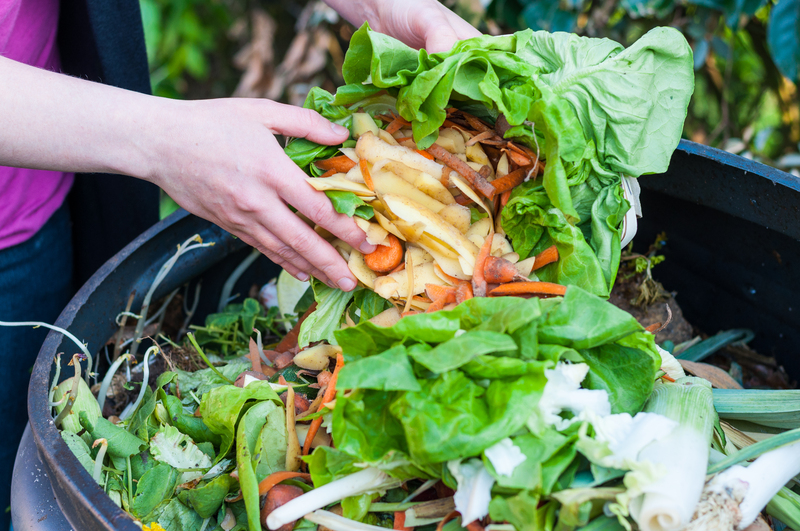How Homeowners Can Save on Bulky Waste Disposal
Dealing with bulky waste can be a headache for many homeowners. Whether it's old furniture, broken appliances, or other large household items, disposing of bulky waste can become expensive and inconvenient if not managed properly. However, with some knowledge and strategic planning, homeowners can save significant amounts of money and even help the environment in the process.
Understanding Bulky Waste
Bulky waste, sometimes called large item waste or bulky rubbish, refers to waste items that are too big to fit into standard bins or regular waste collection services. This category includes:
- Sofas, mattresses, and recliners
- Refrigerators, stoves, dishwashers, washers, and dryers
- Old cabinets and wardrobes
- Exercise equipment
- Large toys and outdoor furniture
- Carpets and rugs
- Televisions and other electronics
Different municipalities may have varied definitions and disposal policies for bulky waste, so it's always best to check your local regulations before deciding how to proceed.
Why Proper Bulky Waste Disposal Matters
Disposing of bulky waste responsibly is important for several reasons:
- Environmental Impact: Many bulky items contain materials that can harm the environment if disposed of improperly.
- Legal Requirements: There may be legal restrictions on how and where you can dispose of large waste items.
- Costs: Improper disposal may lead to fines or expensive removal charges.
- Space Management: Removing unwanted bulky items frees up valuable space in your home.

Top Money-Saving Tips for Bulky Item Disposal
Homeowners can save on bulky waste disposal by making informed decisions and exploring all available options. Here are some comprehensive strategies:1. Assess Your Items: What Can Be Reused or Donated?
Before resorting to disposal, scrutinize the bulky items you wish to get rid of. Many organizations and individuals seek gently used items. Donating unwanted furniture or appliances can reduce the waste burden and help those in need. Consider:
- Charitable Organizations: Groups like Goodwill, Habitat for Humanity ReStore, or local shelters may accept usable bulky items.
- Online Marketplaces: Use apps or websites (such as Craigslist, Facebook Marketplace, or Freecycle) to give away items for free.
- Community Donation Drives: Watch for local events that collect usable household goods and furniture.
Saving Tip: Some charities will pick up bulky items at no cost, saving you on transportation and disposal fees.
2. Check Your Municipal Collection Services
Many towns provide periodic bulky waste collection services, often included in your regular waste management fees. Here's how to take advantage:
- Bulk Pickup Days: Schedule your disposal for city-provided bulk collection days.
- Request Special Pickups: Some municipalities allow homeowners to request an annual or semi-annual special pickup.
- Drop-Off Locations: Find local recycling centers or landfills with discounted or free drop-off for residents.
- Rules & Limits: Check which items are accepted and any volume limits that apply.
Pro Tip: Booking your pickup in advance and separating recyclable materials can prevent extra charges.
3. Rent a Dumpster or Skip Bin for Group Clean-ups
If you and your neighbors have large amounts of bulky waste, consider a group dumpster rental. This method can be highly economical:
- Split Costs: Share the expense of renting a large container among multiple households.
- Variety of Sizes: Choose a bin size that fits your needs--renting a larger bin, even with less frequency, can be cheaper per cubic yard.
- Convenience: All waste is collected at once, saving trips and individual pick-up fees.
Cost-Saving Insight: Make sure only allowed items are placed in the bin; prohibited materials can lead to added fees.
4. DIY Drop-Off: Save by Transporting Waste Yourself
If you have access to a suitable vehicle, self-hauling bulky waste to your local landfill or recycling center can significantly cut costs compared to hiring a removal company. Keep in mind:
- Wear gloves and use straps to secure your load safely.
- Check whether there are additional fees for certain types of electronics or appliances.
- Ask about resident discounts or free disposal days--some cities offer these regularly.
5. Repurpose or Upcycle Bulky Items
Sometimes, what seems like rubbish can become a project. Upcycling or repurposing items like old furniture or wooden pallets can be a rewarding, eco-friendly way to save on disposal while adding value to your home. Ideas include:
- Turning an old dresser into garage storage
- Converting doors or windows into decorative pieces
- Using mattresses for garden insulation projects
Money-Saving Bonus: Upcycled pieces can become unique items for your home or can even be sold online for a small profit.
6. Hire Junk Removal Services Judiciously
If you need professional help, don't rush into hiring the first junk removal provider you find. Compare options and look for:
- Transparent Pricing: Choose companies that provide clear estimates with no hidden fees.
- Recycling Commitments: Some services specialize in eco-friendly disposal and may offer discounts for recyclable items.
- Small Load Discounts: Not all loads warrant a full truck. Inquire about lower rates for partial loads.
- Discounts & Promotions: Look for online deals, off-season specials, or referral incentives.
Insider Secrets for Reducing Bulky Waste Disposal Costs
Plan Ahead
Last-minute bulky waste disposal often leads to higher costs. Without a plan, you're more likely to pay premium rates or face scheduling delays. To avoid this:
- Identify upcoming local collection days and schedule accordingly.
- Ask neighbors if they want to coordinate a group pickup or bin rental for shared savings.
Understand Landfill Fees and Avoid Penalties
Many landfills charge by item, by type of material, or by vehicle size. In addition, illegal dumping or leaving items on the curb without proper arrangements can result in steep fines.
- Learn local landfill fee structures.
- Bundle items to minimize the number of trips or separate out recyclables to access free drop-off options.
- Never dispose of hazardous materials (like refrigerators containing Freon) without proper clearance.
Utilize Seasonal Clean-Up Events
Many municipalities organize annual or semi-annual free bulky waste disposal events for homeowners. These events may be called "Spring Clean-Up," "Large Item Drop Day," or similar titles.
- Find out when these events are scheduled in your area and plan your major disposal around them.
- Take full advantage by pooling items from friends or family, ensuring no spot is wasted.
Check for Rebates and Recycling Incentives
Disposing of certain large appliances (like refrigerators, washing machines, or air conditioners) may qualify you for rebates if you recycle through certified programs. Check with:
- Your local utility company
- State or municipal environmental agencies
- Manufacturer's rebate programs
Eco-Friendly Bulky Waste Disposal Options
Disposing of large waste doesn't mean sending everything to the landfill. Here are some eco-friendly disposal options that can help you save money and reduce your environmental footprint:
1. Recycling Centers
Many communities operate recycling centers that accept a wide range of bulky goods, including electronics, metals, and furniture. Recycling reduces landfill use and, in some cases, can be free or even profitable if you are disposing of valuable materials (like scrap metal).
2. Appliance Take-Back Programs
Major retailers often offer trade-in or take-back programs when you purchase a new appliance. Many will remove your old appliance for free or for a small fee that's much less than standard junk removal services.
3. Responsible Electronic Waste (E-Waste) Disposal
Electronics like TVs, printers, and computers often contain hazardous materials and should be disposed of through certified e-waste handlers. Check with manufacturers or electronic stores, as they frequently host e-waste collection events or offer trade-ins.
4. Special Mattress and Textile Recycling
Many cities are moving to restrict mattress disposal in landfills due to size and material considerations. Look for dedicated mattress recycling programs or textile recycling centers for old rugs and upholstery.

Frequently Asked Questions About Bulky Waste Disposal on a Budget
Is it cheaper to rent a dumpster or use a junk removal service?
It depends on the quantity and type of items. Dumpster rentals are often more cost-effective for large, ongoing projects or group cleanups, while junk removal is better for quick, one-time pickups--especially if you have only a few items.
Can I leave bulky waste on the curb for pickup?
Always confirm with your local municipality before doing this. Leaving bulky items without official pickup arrangements can result in fines or penalties.
How can I find out when my council or city offers free bulk waste collection?
Visit your city or county's official website and search for "bulk waste collection" or "large item pickup." Most local governments publish schedules and guidelines online. You can also call your waste management department for details.
Conclusion: Saving Big on Bulky Waste Disposal
Successfully saving on bulky waste disposal as a homeowner requires a proactive approach: assess what can be reused or donated, coordinate with local or group services, and leverage recycling programs, all while keeping your local laws and environmental responsibilities in mind. By following the strategies in this guide, you'll not only keep disposal costs down but also do your part to create a cleaner, greener community.